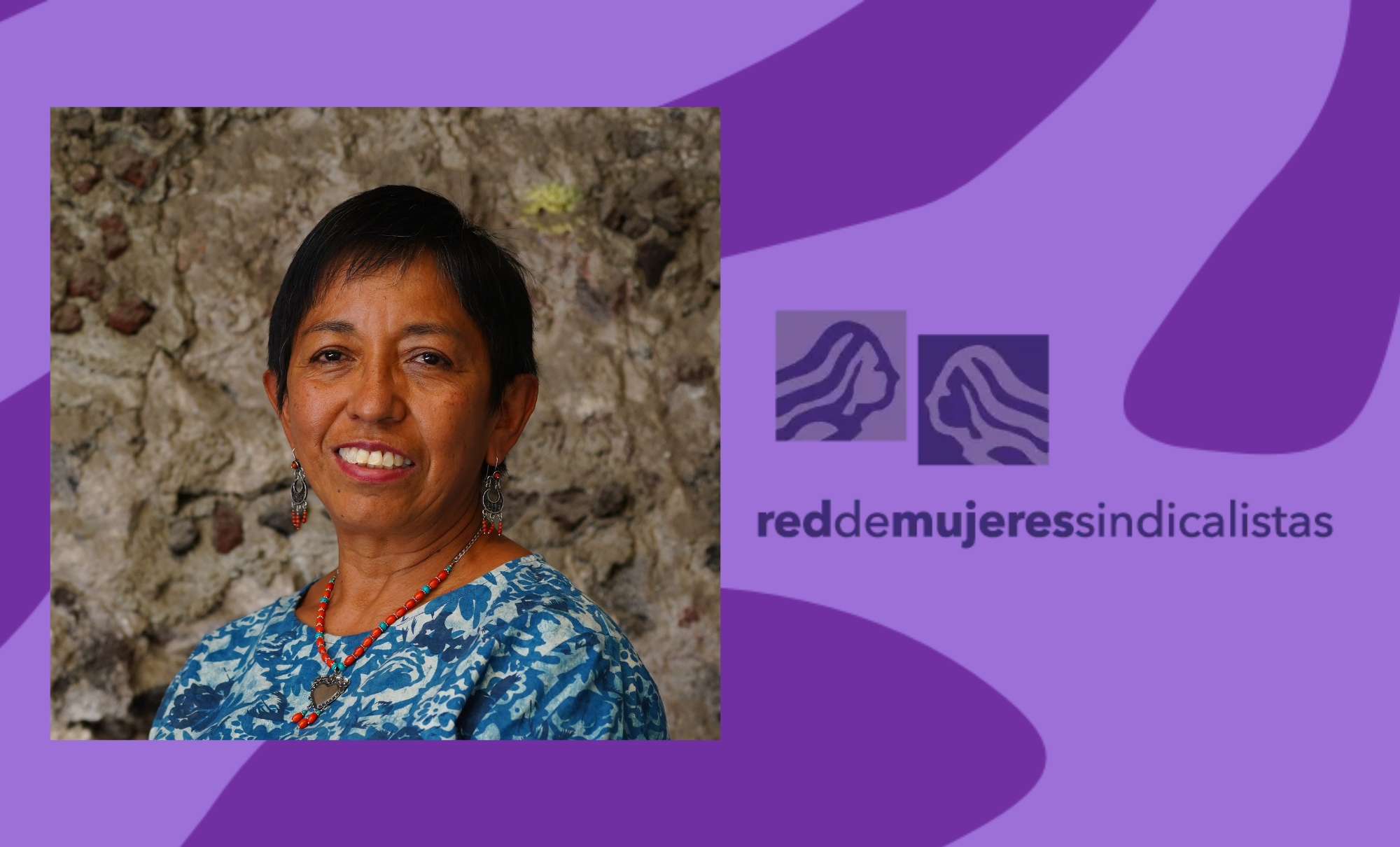Editor’s note: For more than 70 years, the Levi Strauss Foundation (LSF) has embraced the energy and events of our time by supporting community partners who embody Levi Strauss & Co.’s values and are driving social change in communities around the globe. Today, the foundation’s work is grounded in four key areas: democracy, immigrant rights, reproductive justice and worker rights and well-being.
Hannah Yi, LSF’s program manager for reproductive justice and worker rights in Latin America, sat down with Norma Malagón to talk about the work she’s doing to advance worker rights in Mexico with LSF’s grantee Red de Mujeres Sindicalistas (RMS).
Can you tell us a bit about the work RMS does?

Since 1997, RMS has been working to promote the leadership and union participation of women workers in Mexico, promoting women’s rights to decent and dignified work through training and communication campaigns.
In Mexico, a large percentage of women work in maquiladoras, or factories, which are run by foreign companies, and the worker-employer relationships are managed by unions. RMS works in Chiapas, Oaxaca, the State of Mexico, Coahuila and Chihuahua to support women working in maquiladoras and as domestic workers — two sectors made up of a high concentration of young women, as well as migrants, with limited formal education. Our goal is to raise the voices and power of these women to advocate for more equitable and democratic workplaces.
What brought you to this work?
While feminist movements around the world have gained substantial progress, gender inequalities continue to persist. This is particularly true in workplaces, which remain a male-dominated space. This is seen through wage gaps, unequal opportunities for management roles, labor instability, gender discrimination and sexual and workplace violence. These obstacles impede women from having full access to the right to dignified work. Knowing this, I was inspired to get involved and do my part to bridge the gap.
What are some of your current organizational priorities?
Currently, RMS is working to dismantle the inequalities workers face that inhibit their right to decent work, particularly regarding union representation.
As background, in 2019 Mexico passed a significant labor reform law that modernizes the country’s labor laws and addresses issues related to workers’ rights, labor unions and collective bargaining, presenting a clear opportunity to advance labor rights in the country. One notable aspect of the reform law is that it voids any collective bargaining agreements that were not recently voted on by union members. As of May 2023, only 15% of the country’s officially registered collective bargaining agreements met this criterion, paving the way to stand up new, democratic unions that are independent of employer influence. This presents an immediate opportunity in the apparel sector to ensure the voices of women workers are present in unions in the apparel sector.
The 2019 Labor Reform represents a significant step forward in terms of labor rights for women. It presents an opportunity to ensure equal gender representation in unions and establish processes to eliminate discrimination and workplace violence. However, union leadership is disproportionately comprised of men, and women’s participation remains low. As a result, the voices and demands of women workers are often left out of union negotiations.
How has RMS been addressing this?
We have been continuously training women union leaders. We work to provide the tools and information women workers need to meaningfully engage in union activities and ensure their needs are reflected in union negotiations. We believe that by increasing women’s participation and leadership, unions will become more democratic and lead to more equitable workplaces.
What does a more just and equitable world look like for you?
Inequality gaps must be closed. Women deserve stable and secure jobs with decent salaries and access to social security, in addition to having public policies that guarantee that we can participate and remain in our jobs under equal conditions.







